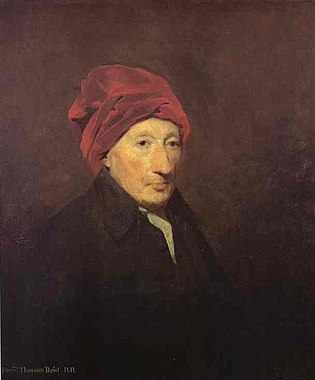
Back واقعية الحس السليم الإسكتلندية Arabic Şotlandiya sağlam fikir məktəbi Azerbaijani Common-Sense-Philosophie German Escuela del Sentido Común Spanish École écossaise du sens commun French Շոտլանդական դպրոց Armenian Hin skoska heimspeki heilbrigðrar skynsemi Icelandic スコットランド常識学派 Japanese 스코틀랜드 상식 학파 Korean व्यवहारवाद Marathi

Scottish common sense realism, also known as the Scottish school of common sense,[1] is a realist school of philosophy that originated in the ideas of Scottish philosophers Thomas Reid, Adam Ferguson, James Beattie, and Dugald Stewart during the 18th-century Scottish Enlightenment. Reid emphasized man's innate ability to perceive common ideas and that this process is inherent in and interdependent with judgement. Common sense, therefore, is the foundation of philosophical inquiry. Though best remembered for its opposition to the pervasive philosophy of David Hume, Scottish common sense philosophy is influential and evident in the works of Thomas Jefferson and late 18th-century American politics.[2][3]
- ^ Boas, George (1957). Dominant themes of modern philosophy: a history. New York: Ronald Press Co. p. 660.
- ^ Towsey, Mark (May 2010). "'Philosophically Playing the Devil' recovering readers' responses to David Hume and the Scottish Enlightenment". Historical Research. 23 (220): 301–320. doi:10.1111/j.1468-2281.2009.00503.x.
- ^ Schultz, Lucille M. (December 1, 1979). "Uncovering the Significance of the Animal Imagery in Modern Chivalry: An Application of Common Sense Realism". Early American Literature. 14 (3): 308–309. Retrieved 10 October 2013. [permanent dead link]